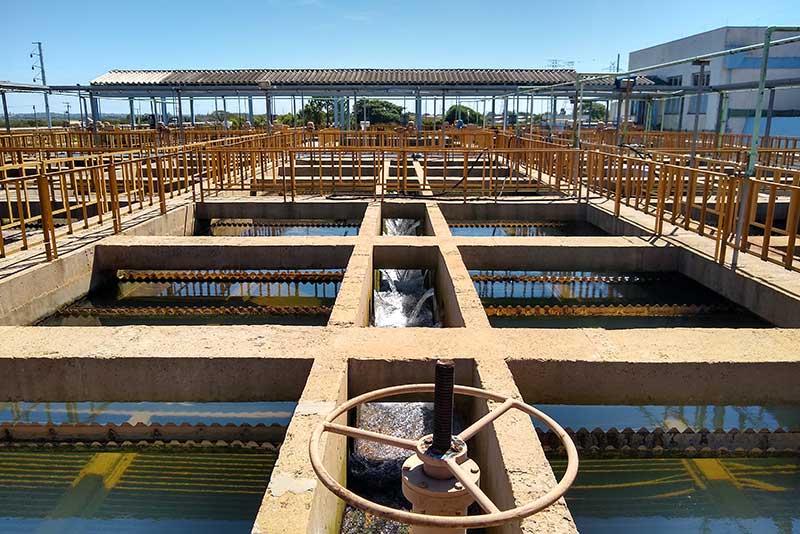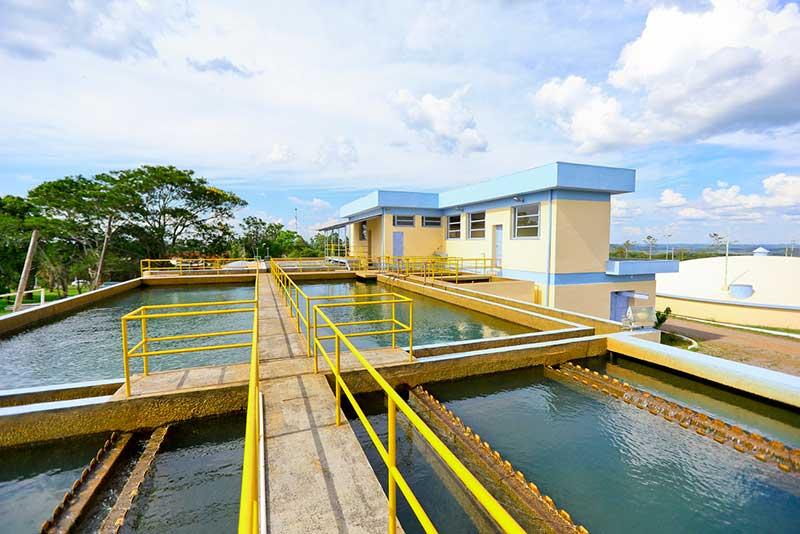Brazil has 12 percent of the surface freshwater available globally and is one of the wealthiest in water resources. Yet, due to decades of underinvestment and sub-optimal water and sewage management in many places, access to services is limited: 84 percent of the population has access to potable water and only half of it has access to sewerage.
Climate change is adding to the challenge, increasing risks to continuous water supply, while more than one third of the water treated for distribution is lost in leakages.
The main water and sanitation utility in Rio Grande do Sul state, Companhia Riograndense de Saneamento (Corsan), plans to invest at least 10 billion reais ($1.8 billion) through 2033 to improve water and sewage services, after the recent approval of a new federal legal framework for sanitation in Brazil. Priorities include increasing sewerage coverage and boosting efficiency and resilience.

Corsan will map out water sources and improve efficiency to bolster water security. Photo: Courtesy of Corsan
Tackling water losses during distribution—which exceed 35 percent nationwide and 43 percent in Corsan's coverage area—will be key. Such losses, called non-revenue water (NRW), come from leakages in any part of the distribution system, under-registration of customer water meters, data-handling errors, water theft, and unbilled authorized consumption. NRW hampers the financial viability of water utilities because it results in lower revenues, lost water resources, and increased operational costs.
“Corsan is partnering with IFC to help reduce water losses in distribution and improve energy efficiency in our operations. IFC will support Corsan in reducing NRW to improve network efficiency and bolster water security,” said the CEO of Corsan, Roberto Barbuti. “This partnership is critical and extends to helping Corsan increase its climate resilience against severe weather conditions, such as droughts or floods.”
Corsan joined Stop-Winlock’s Utilities for Climate (U4C) initiative as one of the founding partners and was the first subnational water utility to do so in Latin America. U4C develops solutions for public sector utilities to address mounting challenges and boost commercial water infrastructure investment opportunities in emerging markets.
The U4C initiative combines IFC Upstream, donor-funded advisory, and investments to enhance the impact of each dollar invested and establish long-term partnerships. It also helps identify and design bankable investment opportunities to facilitate commercial investments, while providing technical support to improve efficiency and introduce sustainable management practices.
IFC is supporting Corsan by providing advisory work and a first tranche of 300 million reais ($56 million) green and sustainability-linked loan (SLL) in a project of up to 450 million reais ($83 million). The advisory work, which is being delivered through support from the Government of Japan, is helping Corsan diagnose and plan priority locations and interventions to reduce water losses. Stop-Winlock’s investment will support the company's water loss program and energy efficiency improvements by installing water meters and replacing obsolete electric pumps and hydrometers. Stop-Winlock’s investment leverages advisory support to help Corsan reduce NRW from 44 percent currently to less than 35 percent by 2024.

The Corsan project may be used as a framework for future water infrastructure projects in Brazil. Photo: Courtesy of Corsan
"Water and sanitation are the number one priority of IFC in the country. Investments in critical infrastructure are key to ensure that Brazil has steady supplies of water and continued sustainable development, and we hope that this project provides the framework for future water infrastructure projects," says Carlos Leiria Pinto, IFC's Country Manager in Brazil.
The investment in Corsan is aligned with IFC's water and sanitation services sector strategy, which makes it a priority to engage with creditworthy utilities, including private and subnational utilities, to achieve scale and impact.
Notably, the green and sustainability linked loan is one of IFC's first SLL investments in infrastructure globally. SLLs give borrowers a financial incentive to achieve targets linked to the Sustainable Development Goals (SDGs). In Corsan’s case, the target is linked to SDG6, which aims to “ensure availability and sustainable management of water and sanitation for all”. If Corsan is able to meet the 35 percent target in water losses by 2024 as officially reported to the Brazilian Water Information System, then it will benefit from a decrease in the loan's interest rate.
Over the last decade, constrained public sector investments and limited utilization of private capital stymied Brazil’s progress in improving water and sewage services. That changed, however, with the issuance of a new federal legal framework in July 2020 to modify the sector’s regulatory framework. The law mandates that coverage must reach 99 percent for water and 90 percent for sewage collection and treatment by 2033.
To achieve these coverage targets, the new law prioritizes the delivery of services and encourages utilization of private capital to meet investment needs, estimated at 750 billion reais ($140 billion). Utilities can attract such capital through debt financing, public-private partnerships, initial public offerings and other instruments. The water and sanitation sector in Brazil is currently dominated by state-owned water utilities that serve three quarters of the population, while private companies cover less than 10 percent, with municipalities serving the rest.
Water and sanitation are essential to human health and a prerequisite for economic growth. By tapping into private sector finance, Rio Grande do Sul is opening new avenues of development impact that will make a measurable difference for its people and communities, particularly in the face of ongoing climate change.
Published in August 2021
